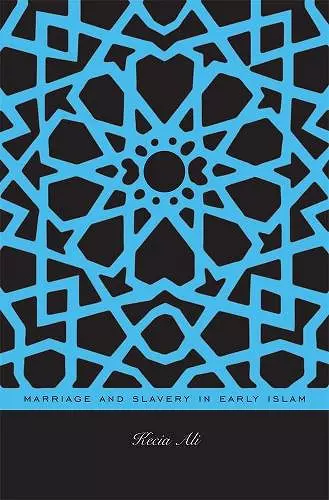Marriage and Slavery in Early Islam
Format:Hardback
Publisher:Harvard University Press
Published:29th Nov '10
Should be back in stock very soon

A remarkable research accomplishment. Ali leads us through three strands of early Islamic jurisprudence with careful attention to the nuances and details of the arguments. -- Judith Tucker, author of Women, Family, and Gender in Islamic Law
Jurists of the nascent Maliki, Hanafi, and Shafi'i legal schools frequently compared marriage to purchase and divorce to manumission. This title presents an analysis of how these jurists conceptualized marriage - its rights and obligations - using the same rhetoric of ownership used to describe slavery.
What did it mean to be a wife, woman, or slave in a society in which a land-owning woman was forbidden to lay with her male slave but the same slave might be allowed to take concubines? Jurists of the nascent Maliki, Hanafi, and Shafi‘i legal schools frequently compared marriage to purchase and divorce to manumission. Juggling scripture, precedent, and custom on one hand, and the requirements of logical consistency on the other, legal scholars engaged in vigorous debate. The emerging consensus demonstrated a self-perpetuating analogy between a husband’s status as master and a wife’s as slave, even as jurists insisted on the dignity of free women and, increasingly, the masculine rights of enslaved husbands.
Marriage and Slavery in Early Islam presents the first systematic analysis of how these jurists conceptualized marriage—its rights and obligations—using the same rhetoric of ownership used to describe slavery. Kecia Ali explores parallels between marriage and concubinage that legitimized sex and legitimated offspring using eighth- through tenth-century legal texts. As the jurists discussed claims spouses could make on each other—including dower, sex, obedience, and companionship–they returned repeatedly to issues of legal status: wife and concubine, slave and free, male and female.
Complementing the growing body of scholarship on Islamic marital and family law, Ali boldly contributes to the ongoing debates over feminism, sexuality, and reform in Islam.
A remarkable research accomplishment. Ali leads us through three strands of early Islamic jurisprudence with careful attention to the nuances and details of the arguments. -- Judith Tucker, author of Women, Family, and Gender in Islamic Law
- Nominated for James Willard Hurst Prize 2011
- Nominated for Distinguished Book Award - Sociology of Religion 2011
- Nominated for Frederick Douglass Book Prize 2011
- Nominated for Albert Hourani Book Award 2011
- Nominated for Joan Kelly Memorial Prize in Women's History 2011
ISBN: 9780674050594
Dimensions: unknown
Weight: unknown
272 pages